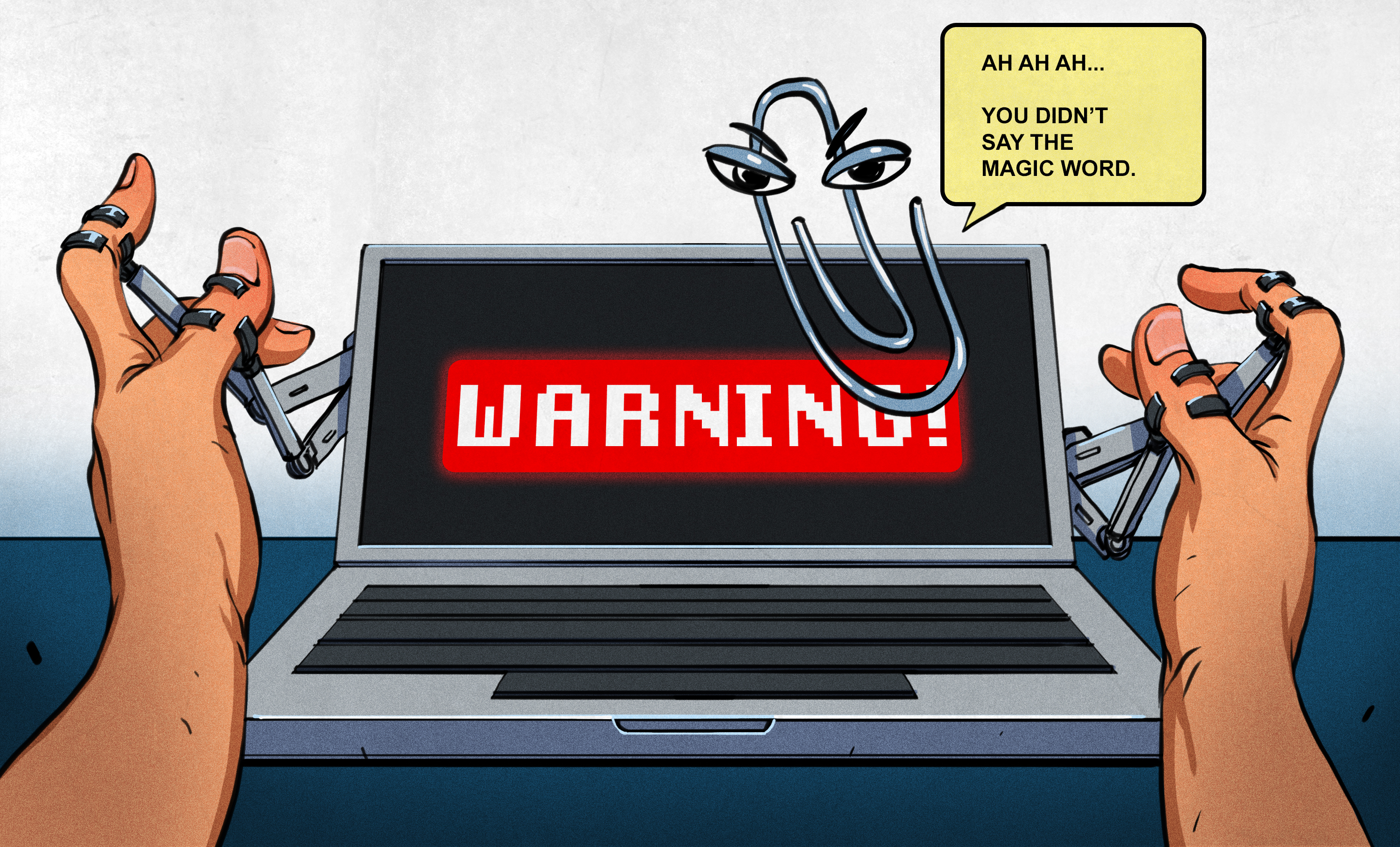When the microcomputer first landed in homes some forty years ago, it came with a simple freedom—you could run whatever software you could get your hands on. Floppy disk from a friend? Pop it in. Shareware demo downloaded from a BBS? Go ahead! Dodgy code you wrote yourself at 2 AM? Absolutely. The computer you bought was yours. It would run whatever you told it to run, and ask no questions.
Today, that freedom is dying. What’s worse, is it’s happening so gradually that most people haven’t noticed we’re already halfway into the coffin.



Nothing. You can still run linux and docker stuff on your computer yourself.
What happened is that a pair of specific OSes became too invasive and locked.
I was trying to setup a completely open, fully unsecured samba share yesterday on either a windows 10 machine or a fedora kinoite machine…
I gave up. It was too hard.
Why do I need fancy security getting in the way of everything?
Sounds like you just want an easy file share server - might I suggest copyparty https://github.com/9001/copyparty
It was made just a few months ago, runs on everything, and can be set up with a single python command!
Thanks! I’ll give it a go.
Back in my dark days when I still had Windows systems, it was always Windows causing issues with shares. Always. Linux to Linux? Zero issues.
For now.
What happens when OEMs start shipping their own mac-style ARM SOCs. Projects like Asahi take years to get to a workable state, and that’s on a device that millions own.
To answer my own question, PostMarketOS happens. Devices that mostly don’t work with the exception of a couple unicorn devices that are still missing features the end user would have on the OEM OS.
x86_64 will eventually fall out of fashion. Its already happened with Macs & Chromebooks. Its only a matter of time for Windows based devices. Then we’re completely reliant on the goodwill of companies like Tuxedo, Framework and Steam to support us.
There will always be a niche market for independent PC builders. This article pertains more to the smartphone market which have extremely proprietary hardware. I suspect that with Google locking down android, a niche market for non-Android/iOS phones will emerge.
Just look at the LibrePhone project and GrapheneOS announced a partnership with a major phone manufacturer to design a phone around their specifications.
So long as there is a market for such things, alternatives will exist.
Though, the caveat here is that the price of phones not produced with a partial purpose of collecting user data will be quite a bit more expensive than the mainstream phones that give discounts just to get their phones into the hands of consumers on whom they make most of their money trading user data out the back end.
Apple used non-x86 processors far longer than x86, which was barely 14 years - only 2 years longer than they used PPC.
Chromebooks also started on ARM and x86.
Neither are/were propping up x86 in any significant way. Apple’s choice of Intel CPUs were always oddball low-power variants, anyway, like the i5-4308U in my old Mac Mini. It’s a 2c4t laptop CPU at best.